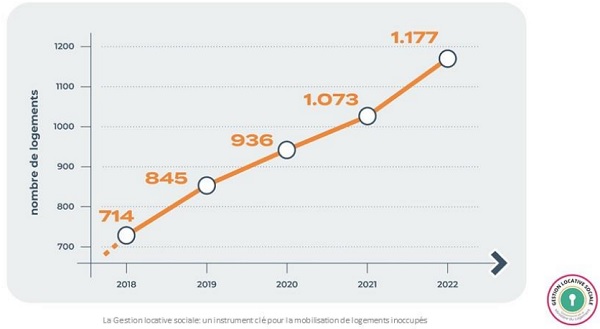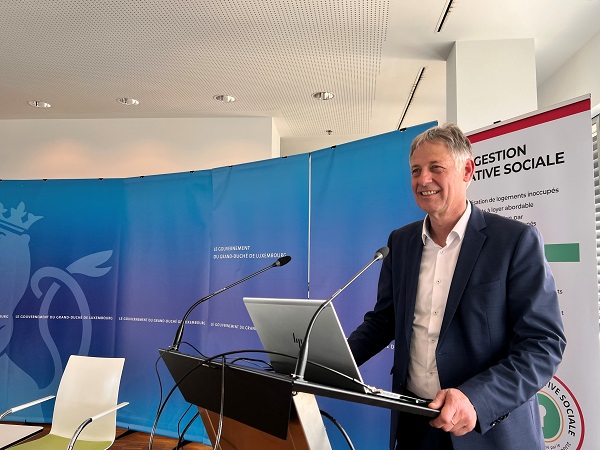 Credit: MLOG
Credit: MLOG
Luxembourg's Ministry of Housing has revealed the positive progression of the approach to social rental management with the aim of utilising unoccupied housing.
In 2022, a total of 1,177 dwellings were rented at affordable prices by private owners to approved partners of the Ministry of Housing, in order to make them available to tenants in an emergency situation. As a result, the total number of unoccupied dwellings "mobilised" through the “social rental management” initiative has increased by 10% in one year. In order to encourage more owners to engage through “social rental management”, the ministry plans to increase the tax exemption rate from 50 to 75% on net rental income.
During a press conference, on 27 March 2023, Luxembourg's Minister of Housing, Henri Kox, presented the results for the year 2022 of “social rental management”. The event was followed by a convention signing ceremony by the Minister and the 39 partners of the Ministry.
The “social rental management” initiative
Anxious to fight against social exclusion through housing, the State introduced the concept of “social rental management” in 2009. This instrument has two main objectives: the mobilisation of unoccupied housing, plus access at affordable prices to low-income households.
“Social rental management” can be implemented by a municipality, a union of municipalities, a social office, a foundation, a non-profit organisation, a company with a societal impact whose social purpose is the promotion of housing, or social promoters. These actors sign a collaboration agreement with the Ministry of Housing and then rent unoccupied housing, belonging to private owners, to make them available to people who have difficulty finding housing. On average, rents paid to private landlords are between 30% and 40% below market rents. The actors also provide support for people in order to increase their chances of being able to return to unsubsidised housing, if necessary. This support for tenants is implemented thanks to financial support for approved organisations from the Ministry of Family, Integration and the Greater Region.
More incentives for owners
In return for a rent well below the market price, private owners renting their property under “social rental management” currently benefit from a tax exemption of 50% on their net rental income. In the tripartite agreement of 3 March 2023, between the government and the ULC and the trade unions, it is planned to increase the tax exemption rate to 75%. This measure, which will still have to be transposed into tax legislation, concerns rental income received from 1 January 2023.
“Almost 1,200 housing units in 'social rental management' represent many affordable housing units and rescued families. Thank you to the solidarity owners who made the choice of a rental income well below the market price to help households having difficulty finding housing", noted the Minister of Housing, Henri Kox, during the press conference.
The Ministry of Housing as a partner
The contracted partners receive from the Ministry of Housing a contribution of €120 per month and per accommodation to cover management and maintenance costs directly related to the accommodation.
Municipalities benefit from an additional financial advantage. As part of the Housing Pact 2.0, a budget allocation of €2,500 per year is provided for per accommodation managed under the scheme on the territory of the municipality participating in the pact. For this allocation, the Ministry of Housing takes into account all the accommodation managed under the scheme of all the contracted partners.
“As part of the Housing Pact, I invite municipalities to get more involved in the mobilisation of this type of housing. Social 'rental management' is a winning instrument for all concerned: residents, contracted actors, landlords and municipalities,” underlined Minister Kox.
Figures
The number of mobilised housing has increases over the past five years as follows:
- 2018: 714
- 2019: 845 (+18%)
- 2020: 936 (+10%)
- 2021: 1,073 (+15%)
- 2022: 1,177 (+10%)

Minister Henri Kox, credit: MLOG








